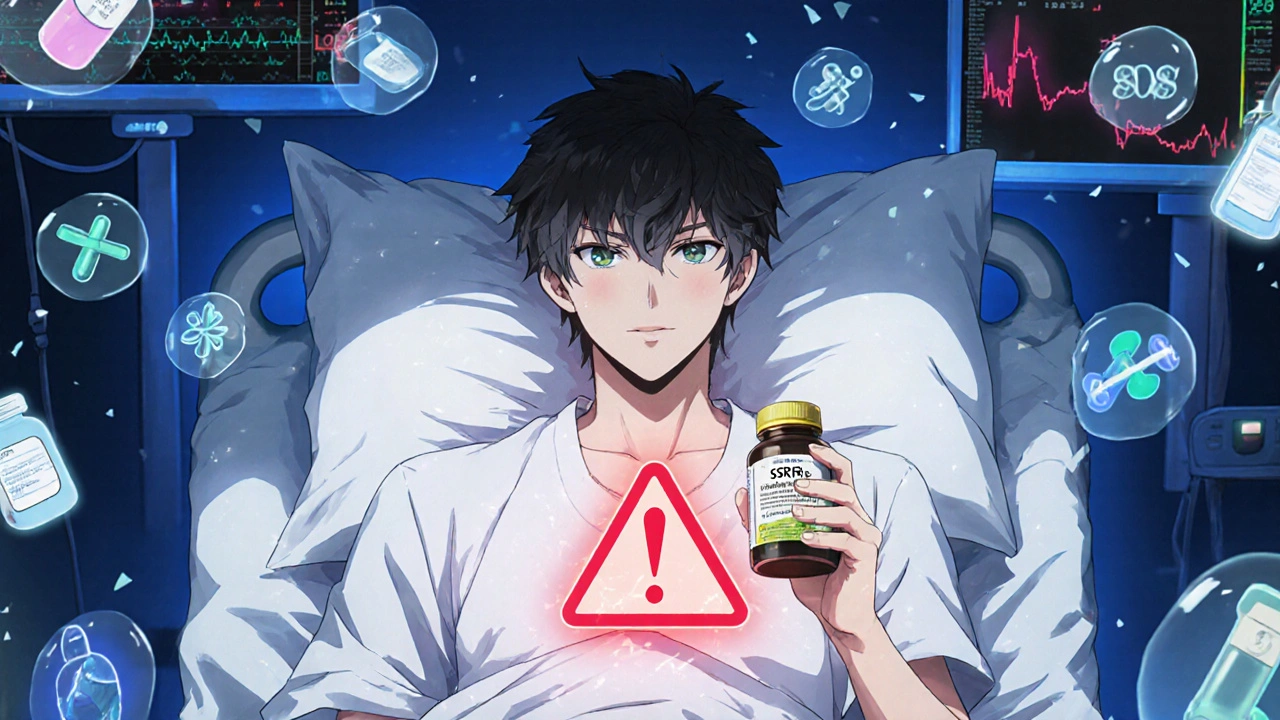St. John's Wort: What It Is, How It Works, and What You Need to Know
When people look for natural ways to feel better, St. John's Wort, a yellow-flowered herb used for centuries to support mood and nervous system health. Also known as Hypericum perforatum, it’s one of the most studied herbal supplements for mild to moderate depression. But here’s the catch—it’s not harmless just because it’s natural. This plant doesn’t just float quietly in your body. It actively changes how your liver processes other drugs, which can turn safe medications into risky ones.
That’s why antidepressants, prescription drugs like SSRIs used to treat depression and anxiety and blood thinners, medications like warfarin that prevent dangerous clots can become dangerous when mixed with St. John’s Wort. You might think switching from a pill to a tea is safer, but your body doesn’t see it that way. The herb boosts the activity of liver enzymes that break down drugs, meaning your antidepressant, birth control, or even your heart medication might get flushed out too fast—or build up to toxic levels. This isn’t theoretical. There are real cases of people ending up in the ER because they didn’t know.
It’s also not a one-size-fits-all solution. For some, it helps ease low mood, fatigue, or sleep issues without the side effects of prescription drugs. But for others, it does nothing—or makes things worse. And if you’re dealing with serious depression, anxiety, or bipolar disorder, relying on it alone can delay real treatment. The science shows it works best for mild cases, but even then, dosage matters. Most studies use 300 mg three times a day of a standardized extract. Not every bottle on the shelf has the same strength, and some don’t even contain the active ingredients they claim.
What you’ll find in the posts below isn’t just a list of articles. It’s a practical toolkit. You’ll see how St. John’s Wort fits into the bigger picture of mental health, drug safety, and natural remedies. Some posts warn about dangerous interactions with antidepressants and blood thinners—exactly the kind of risks people overlook. Others dig into why herbal supplements aren’t regulated like pills, and how that affects what you’re actually getting. You’ll also find real advice on what to do if you’re already taking it, how to talk to your doctor about it, and when to walk away from it entirely. No fluff. No hype. Just what you need to know before you reach for that bottle.

Herbal Supplements That Interact with Common Prescription Drugs
Finnegan O'Sullivan Nov 17 13Certain herbal supplements like ginkgo biloba and St. John’s Wort can dangerously interact with common prescription drugs, increasing bleeding risk, reducing medication effectiveness, or causing life-threatening side effects. Know which ones to avoid.
More Detail